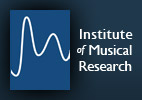Mapping the Musical City
This symposium - in association with the Insitute of Musical Research, School of Advanced Studies (supported by Nick Baker) and Newcastle University Humanities Research Institute - addresses mapping as both an object and method of musicological enquiry. Inspired in part by the “spatial turn” in the humanities at large and fuelled by the increasing accessibility of Geographic Information Systems software, musicologists can now visualize and analyse complicated trends across time and place with greater ease than ever before. Yet, the ideological and epistemological implications of different mapping tools and techniques remain underexplored. The aim of this symposium is to situate recent projects within a longer history of cartographic practice in music studies.
By taking a historical perspective on the mapping of musical cities this symposium will raise questions on two fronts. Firstly, it will acknowledge cartography as a factor in past musical practice, asking, for instance: how the active “zoning” of civic space regulated performers’ livelihoods; how tour guides and travel writing predetermined listening experiences; and how the policing of bodily display and alcoholic consumption have made entertainment venues a focus for surveillance and control. The second set of questions relates to the mapping techniques available to music studies today: we will ask what is at stake in converting affective, interpersonal musical experiences into machine-readable spatial coordinates; how the problems of mapping the performing arts differ from those of mapping literary or visual culture; and how the current fascination with urban centres emerged from earlier work at the scale of the region or nation.


